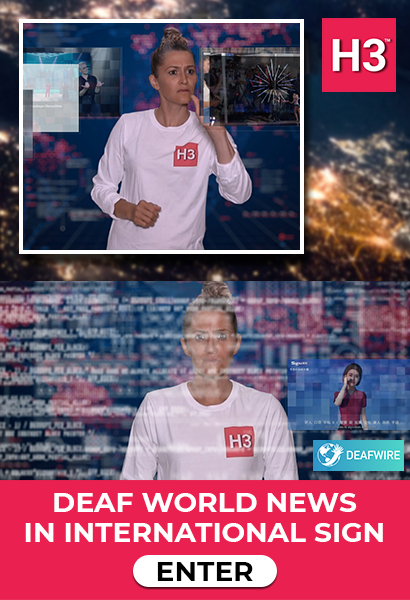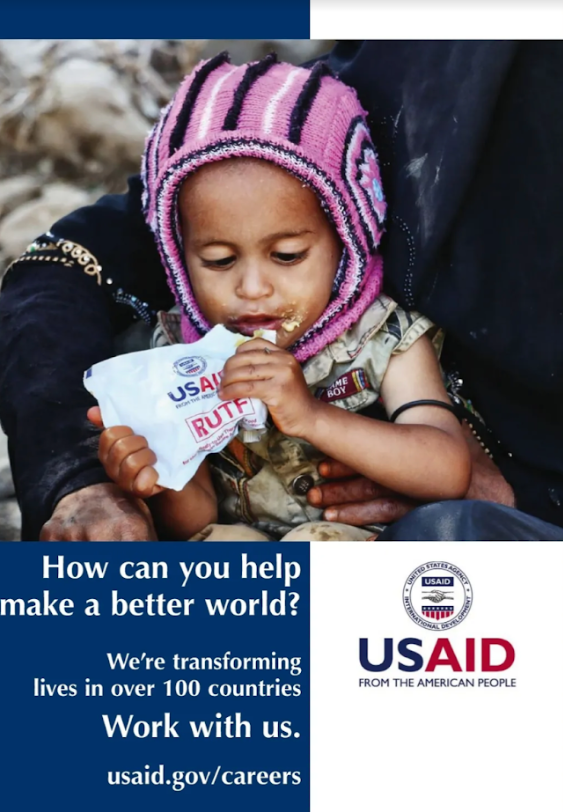
Weekly DEAFWIRE news recaps
Full DEAFWIRE videos can be seen
at https://h3world.tv/shows_name/deafwire/
Deaf American activist Kelby Brick in U.S. introduced the concept of “Deaf Ecosystem” which advocates an economy among Deaf professionals. Deaf businesses can grow by working together. Mutually supportive business-to-business trade between Deaf companies creates another source of income. Deaf businesses can build relationships with professional, social and recreational organizations, schools and governments. This network helps new and existing Deaf businesses grow markets by offering goods and services to hearing customers. The concept began in the USA, but it is now a global idea. The Deaf Ecosystem concept has reached Canada, Australia, the Philippines, Europe, India, New Zealand and beyond.
In the Netherlands, out of its 17 million people, just 1.7% of the population can sign. To address this, a group of local artists have created a new video on TikTok that combines music, dance and Netherlands sign language (NGT). The video begins with Court, a 22-year-old Deaf man, who collaborated with T-Mobile Netherlands, a mobile data provider, and musicians Sor and Sigourney K to create a music video titled “Body Language” that entertains and teaches at the same time. They chose TikTok, which is one of the fastest growing social media platforms.
DEAFDIGEST JOBS CENTER
Looking for a job? See Jobs Center for job openings.
* DSHS ALTSA Case Management Team Lead (ASL) – Lacey, WA
* DSHS ALTSA Case Management Field Supervisor (ASL) – Lacey, WA
DEAFDIGEST JOBS CENTER –
http://deafdigest.net/jobs-center/
The Ntinda Tech Buzz Hub, a business startup center in Kampala, Uganda, hosted the first-ever local debate done entirely in sign language, with Deaf and hearing signers and interpreters. More than seventy people – both Deaf and hearing sign language students, Deaf professionals, local Deaf community leaders and hearing citizens – discussed the value of technology in Deaf education, with Deaf debaters arguing in favor and hearing debaters opposed. But the event was not limited to debate – contests in poetry and storytelling were also included. Organizer Alex Agwal, head of Uganda’s Deaf advocacy organization Signs for All, worked with the Tech Buzz Hub, the National Debate Council, United Persons with Disabilities and others to make it happen. Alex is a student majoring in physics and math who operates three centers where sign language is taught.
Two Deaf women Lina Mweyalala and Bata Armas talk about their lives in Namibia. Namibia is a beautiful country because it has sand/desert and different kinds of animals. It is very hot and doesn’t rain much. The Namibia government is very good because Deaf education is accessible is free. They also provide funding for sign language interpreters, and promotes the inclusion of Deaf people in the economy to ensure they have access to opportunities. The Deaf community in Namibia consists of Deaf-owned businesses such as hairdressing, and creating jewelry from glass and stones.
Olatunji Rebecca, a hearing person founded the ”I Can Sign” project. Why did she set up this project? Her family is Deaf and they use sign language to communicate. At first, she withdrew from the family and avoided signing with them until her sister confronted her to ask why she was ashamed of them. This was the beginning of her journey. She set up the project for four reasons. Firstly, in Nigeria, over 90% of Deaf children are born to hearing parents with no communication between them. Secondly, when there is domestic abuse, Deaf children are unable to communicate this. Thirdly, if a Deaf child enters school with no communication, this delays primary education. Fourthly, the lack of communication and access to information results in a poor life. As a part of the “I Can Sign” project, Rebecca taught 25 parents how to communicate in sign language. In 2020, the pandemic forced them to move online. Rebecca’s dream is to train at least 500 parents by 2025




